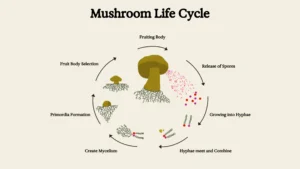In ancient times, people had a very different understanding of health compared to what we have today. They didn’t have hospitals, modern medicines, or advanced technology. Instead, they relied on the natural world around them. For these early civilizations, health was closely tied to nature, the environment, and spiritual beliefs.
Ancient Egyptians, for example, believed that good health was a result of balance between the body and the gods. They used a variety of herbs and plants to treat ailments, and they placed great importance on cleanliness and hygiene. Similarly, the ancient Chinese developed traditional medicine practices like acupuncture and herbal remedies, which are still used today.
Natural remedies were a cornerstone of ancient health practices. Many cultures believed that plants, trees, and even fungi had special powers to heal the body and mind. They experimented with different natural substances to create medicines, some of which were surprisingly effective. Among these natural remedies, mushrooms held a special place.
Mushrooms in Ancient Medicine
Mushrooms have been used in traditional medicine for thousands of years. Ancient civilizations like the Egyptians, Greeks, Romans, and Chinese all recognized the medicinal properties of mushrooms. In ancient Egypt, mushrooms were considered a delicacy and were often reserved for the pharaohs. The ancient Greeks believed that mushrooms gave warriors strength, while the Romans thought they could be used to cure diseases.
In China, mushrooms have been used in traditional medicine for over 2,000 years. The Reishi mushroom, for example, was known as the “mushroom of immortality” and was believed to promote longevity and overall well-being. Other mushrooms like Shiitake, Maitake, and Cordyceps were also valued for their health benefits.
Mushrooms were used to treat a wide variety of ailments, from digestive issues to respiratory problems. They were often brewed into teas, added to food, or used in medicinal concoctions. While ancient people didn’t have the scientific knowledge to understand why mushrooms were so effective, they knew that these fungi had powerful health-boosting properties.
Dynamic Mushrooms: The Connection to Health
Today, mushrooms are often referred to as a “superfood,” a term used to describe foods that are exceptionally rich in nutrients and beneficial to health. This is where the concept of “dynamic mushrooms” comes into play. Dynamic mushrooms are those that have a particularly strong impact on health, offering a wide range of benefits.
One of the most significant health benefits of mushrooms is their ability to boost the immune system. Certain mushrooms, like Reishi, Shiitake, and Maitake, contain compounds called beta-glucans, which are known to enhance the body’s immune response. This makes them effective in helping the body fight off infections and diseases.
Mushrooms are also rich in antioxidants, which protect the body from damage caused by free radicals. Free radicals are unstable molecules that can harm cells and contribute to aging and diseases like cancer. By including mushrooms in your diet, you can help protect your body from these harmful effects.
Additionally, mushrooms are a great source of vitamins, minerals, and dietary fiber. They are low in calories and fat, making them an excellent choice for maintaining a healthy diet. Some mushrooms even have adaptogenic properties, meaning they help the body adapt to stress and maintain balance.
In recent years, the popularity of mushrooms as a health supplement has surged. People are once again turning to these ancient remedies, recognizing their powerful health benefits. But what’s even more interesting is how modern science is now backing up what ancient cultures knew all along.
Modern Science Meets Ancient Wisdom
The medicinal properties of mushrooms are no longer just folklore. Modern scientific research has confirmed many of the health benefits that ancient people believed in. Studies have shown that mushrooms can boost the immune system, fight cancer, reduce inflammation, and even improve brain function.
For example, the Reishi mushroom, once reserved for Chinese emperors, has been found to have anti-cancer properties. Shiitake mushrooms are rich in nutrients that support heart health, and Lion’s Mane mushrooms have been shown to improve memory and cognitive function.
As scientists continue to study mushrooms, they are discovering new compounds and health benefits. For instance, Cordyceps mushrooms have been found to enhance athletic performance by increasing the body’s production of ATP, a molecule that provides energy to cells. This makes Cordyceps popular among athletes and fitness enthusiasts.
The resurgence of interest in natural remedies has led to a growing market for mushroom-based health products. From supplements to teas to skincare products, dynamic mushrooms are being used in a variety of ways to promote health and wellness. This trend reflects a broader movement towards embracing ancient wisdom and combining it with modern science.
The Mystical Connection: Stonehenge and Mushrooms?
Given the ancient use of mushrooms for health and spiritual purposes, it’s intriguing to speculate whether there could be a connection between Stonehenge and mushrooms. Some historians and archaeologists have suggested that Stonehenge might have been a place for healing rituals, where natural remedies, including mushrooms, were used.
While there is no direct evidence linking Stonehenge to the use of mushrooms, the idea is not far-fetched. The monument’s alignment with the sun and the changing seasons suggests that it was deeply connected to nature and possibly to ancient health practices. Perhaps Stonehenge was a place where people came to seek healing, using the natural resources around them, including dynamic mushrooms.
Final Words
Stonehenge remains one of the greatest mysteries of our time, a symbol of ancient wisdom and knowledge. The use of dynamic mushrooms in ancient medicine highlights how our ancestors turned to nature for health and healing.
Today, as we rediscover the benefits of these ancient remedies, we see a fascinating blend of old and new, where modern science meets the wisdom of the past.
For students and young learners, understanding the connection between history, health, and nature is essential. By exploring topics like Stonehenge and dynamic mushrooms.
We can appreciate the importance of natural remedies and the enduring legacy of ancient civilizations. So, next time you see a mushroom, remember that it’s more than just a fungus – it’s a link to our ancient past and a key to a healthy future.



